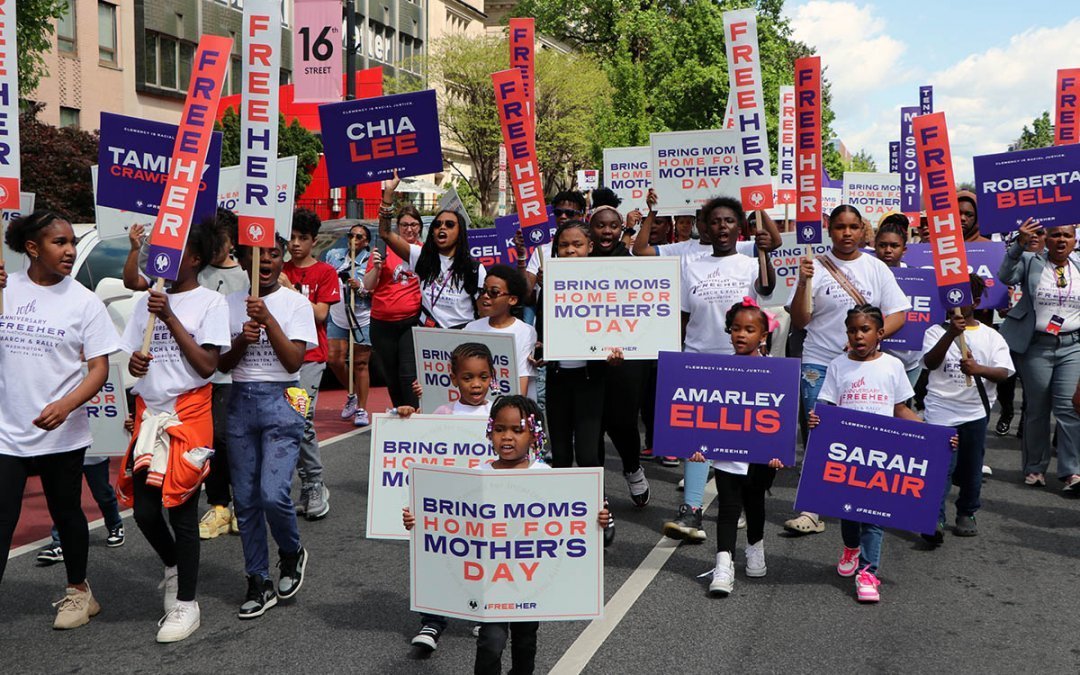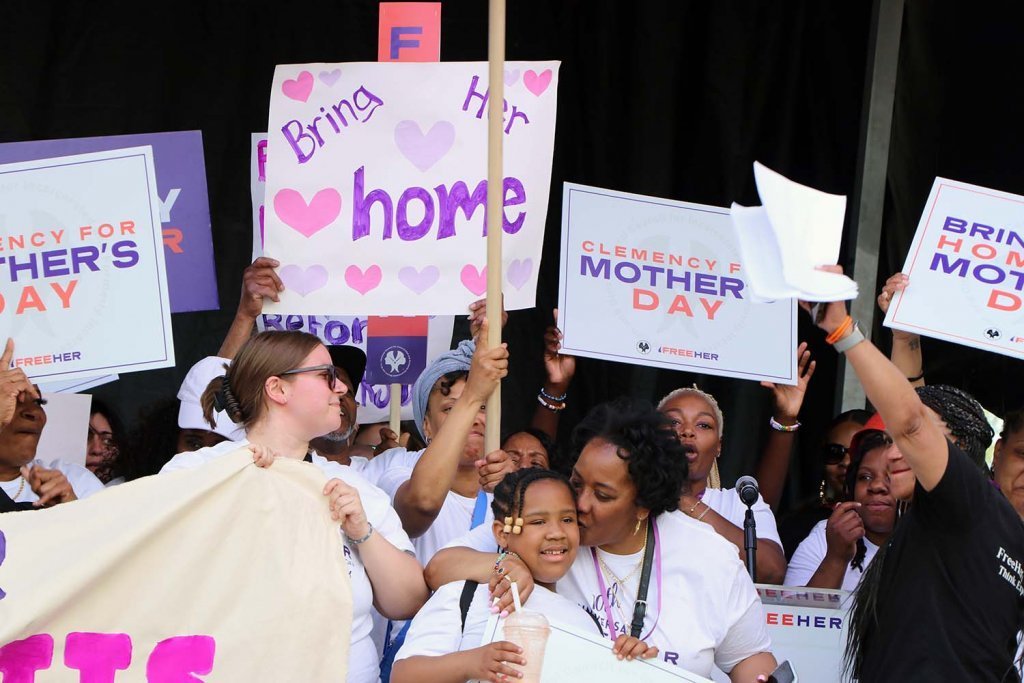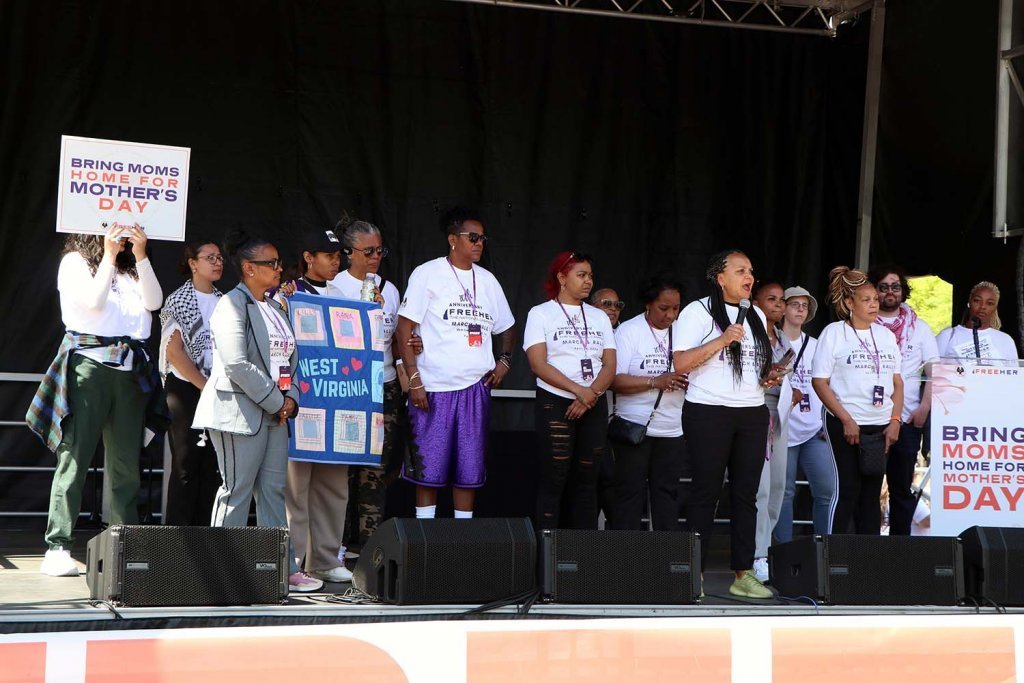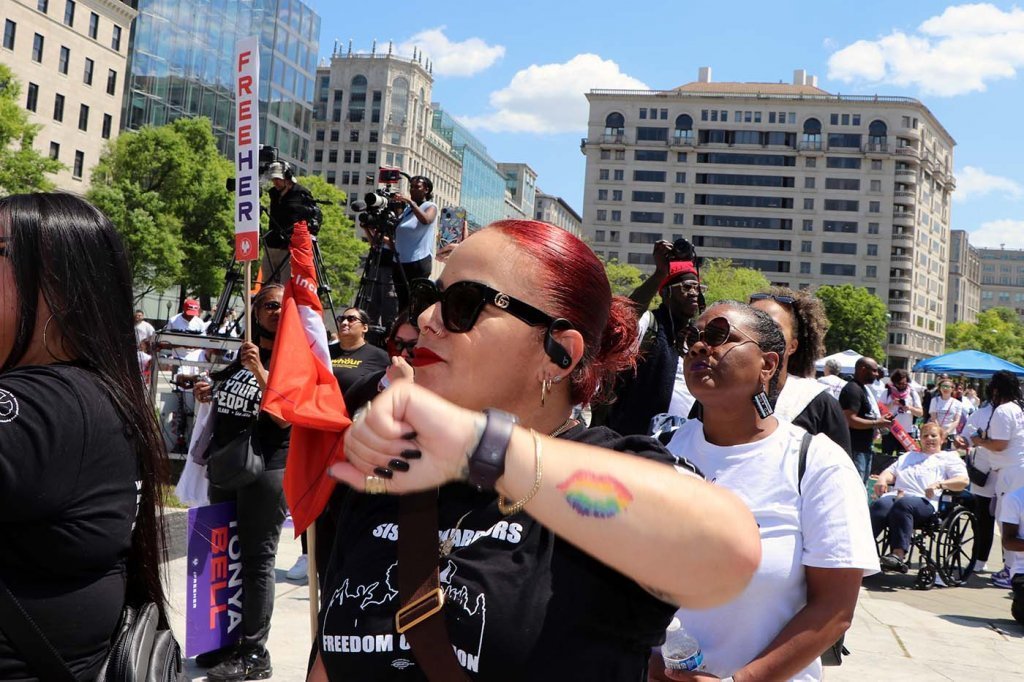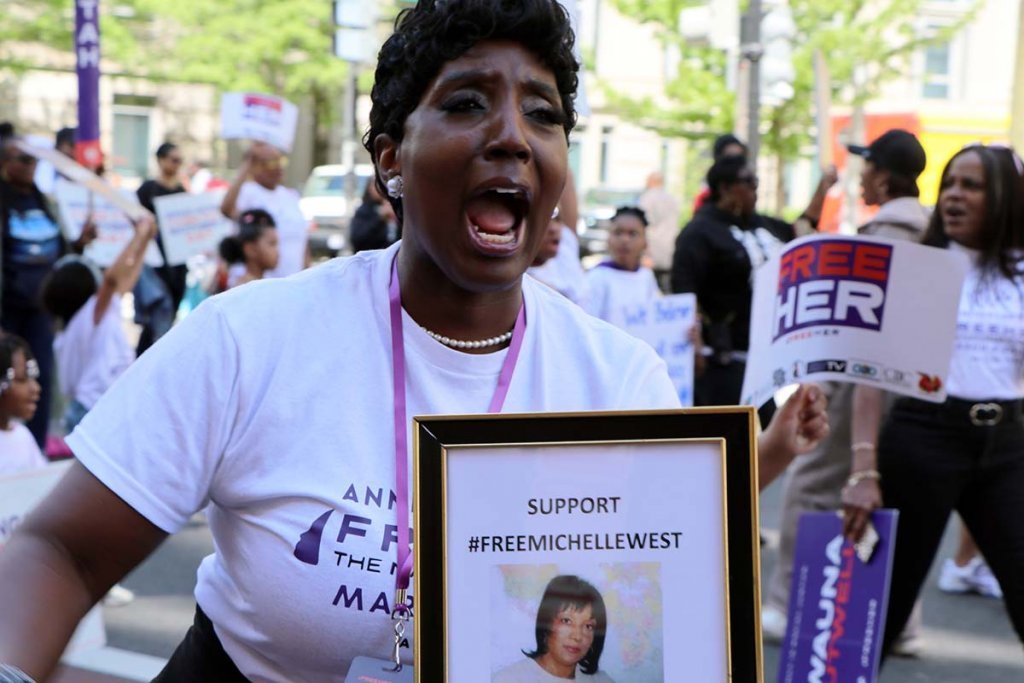WASHINGTON — “Bring Moms Home for Mother’s Day,” called protesters at the 10th Anniversary FreeHer March and Rally on Wednesday.
Organized by The National Council for Incarcerated and Formerly Incarcerated Women and Girls, the peaceful protest emphasized that this Mother’s Day, nearly 150,000 incarcerated mothers will not be able to celebrate, separated from their children. Many of the mothers are awaiting trial in jail, unable to pay the bail that in some cases might be equal to their annual income. The rally participants called on President Joe Biden’s administration and state governors to take urgent action.
“With a stroke of a pen, they can unite families,” said Ebony McMorris, a White House Correspondent at American Urban Radio Networks.
The Council members pinned their hopes on Biden’s presidency, whom they met as a Vice President of former President Barack Obama. Andrea James, Founder & Executive Director of the Council, remembered talking to President Obama in 2014.
“We said, Mr. President, as you’re going into the federal prisons, please remember that women are incarcerated too. They are mothers, grandmothers, sisters, aunts, wives, and we need them to come home,” she recalled.
President Obama granted clemency 1,927 times over eight years in office, the highest total of any president since the 1950s.
President Biden, however, needs to be more proactive, according to The Council. He granted clemency to 16 individuals the day of the protest, but James believes it is insufficient.
“Guess what President Biden gave us?” she pointed out his latest clemency acts. “I guess all the White House heard us say was that we wanted just a little bit of freedom.”
“We want it all,” some in the audience screamed back.
The Council speakers, along with national allies and organizations, emphasized the case of Michelle West, who they believe tops the list for urgent clemency.
West was charged and convicted in a drug conspiracy case that held her responsible for the actions of her co-conspirators in 1994. The Judge imposed a life sentence plus 50 years, plus five years probation for a first-time offender.
“When I last wrote about Michelle’s case, I was hoping that it added to the efforts… to correct a wrong that had been done,” Walter Pavlo, an expert on federal criminal law enforcement, wrote for Forbes in 2021.
Yet West’s clemency was rejected in 2015, and no action has been taken since. The recent closing of the FCI Dublin prison further exacerbated West’s situation, as she is being moved around other prison facilities without knowing her final destination.
“My mom is not a slave, and it feels like slavery at this point,” said Miquelle West, Michelle West’s only daughter.
Children of incarcerated and formerly incarcerated mothers were leading the march, calling to have their families united. On the other side, many formerly incarcerated women came to fight to have their children back.
Fifty-eight percent of imprisoned women in state prisons have a child under the age of 18, and often, the mothers are separated from their children for the first time upon entering prison.
“FreeHer to me also means free my kids,” said Kimberly Dunne, Co-National Organizer at the Formerly Incarcerated & Convicted People and Families Movement. “I lost my kids to incarceration, and my kids are still abandoned, as I say, by adoption. FreeHer is extended to my kids because they are still not free.”
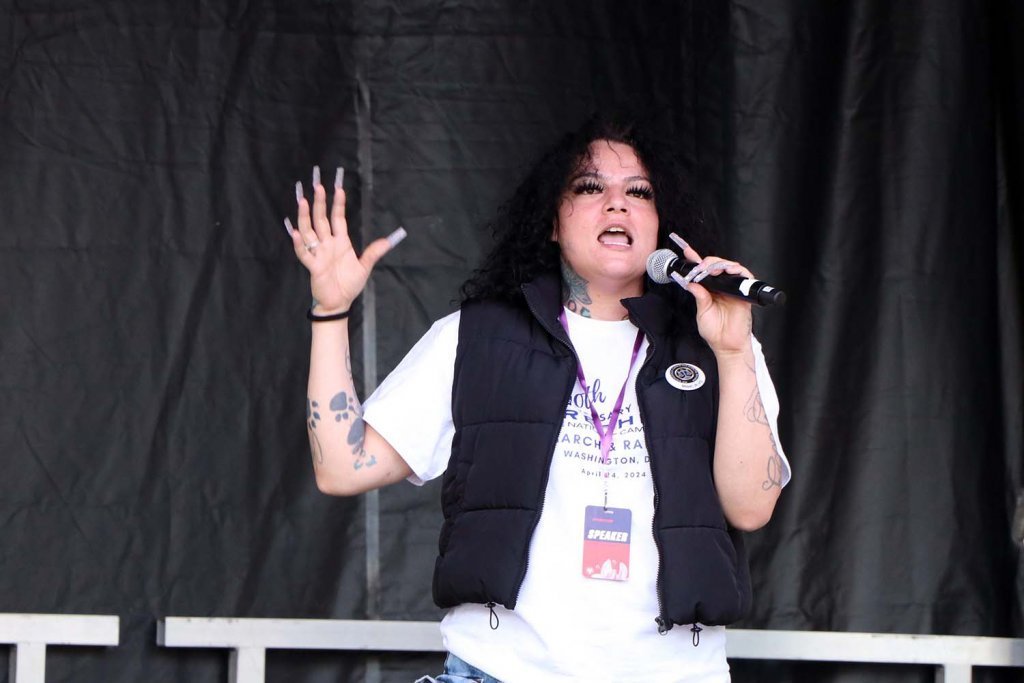 As Mother’s Day approaches, fractured families, missing mothers and the risk they impose on children’s futures are at the forefront of this primarily black community of activists. Amanda Wilders is among the organizers of the Black Mothers March on the White House, which is planned for May 12.
As Mother’s Day approaches, fractured families, missing mothers and the risk they impose on children’s futures are at the forefront of this primarily black community of activists. Amanda Wilders is among the organizers of the Black Mothers March on the White House, which is planned for May 12.
“We know this day is not a happy day for many mothers,” she said. “We understand that this state is the problem, and we all have a common enemy: the United States government.”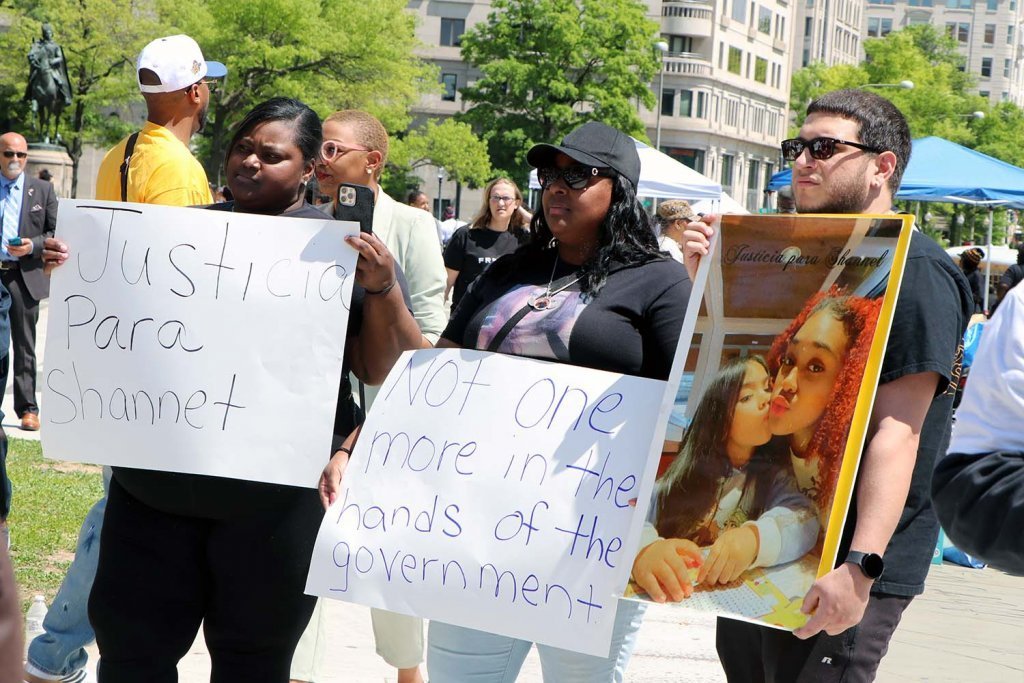 “The problem is that this country has gone on not caring, not liberating, and has been putting prison over our community,” said McMorris, and many protesters loudly agreed with her.
“The problem is that this country has gone on not caring, not liberating, and has been putting prison over our community,” said McMorris, and many protesters loudly agreed with her.
The Council, among other participant organizations, believes the incarceration system harms society, as long prison sentences do not deter crime but destroy lives. Instead, the Council advocates that tax dollars should be put into providing resources to at-risk families and communities, including initiatives like affordable housing, post-incarceration employment, and reinstating voting rights.
“Clemency, commutation, sentencing reform – those are the meantime solutions,” said Shekhinah Braveheart, Advocacy Associate at the Justice Policy Institute. “But the end goal is to end this system that has fractured our families, exacerbated trauma, destabilized our community and rehabilitated no one.”

